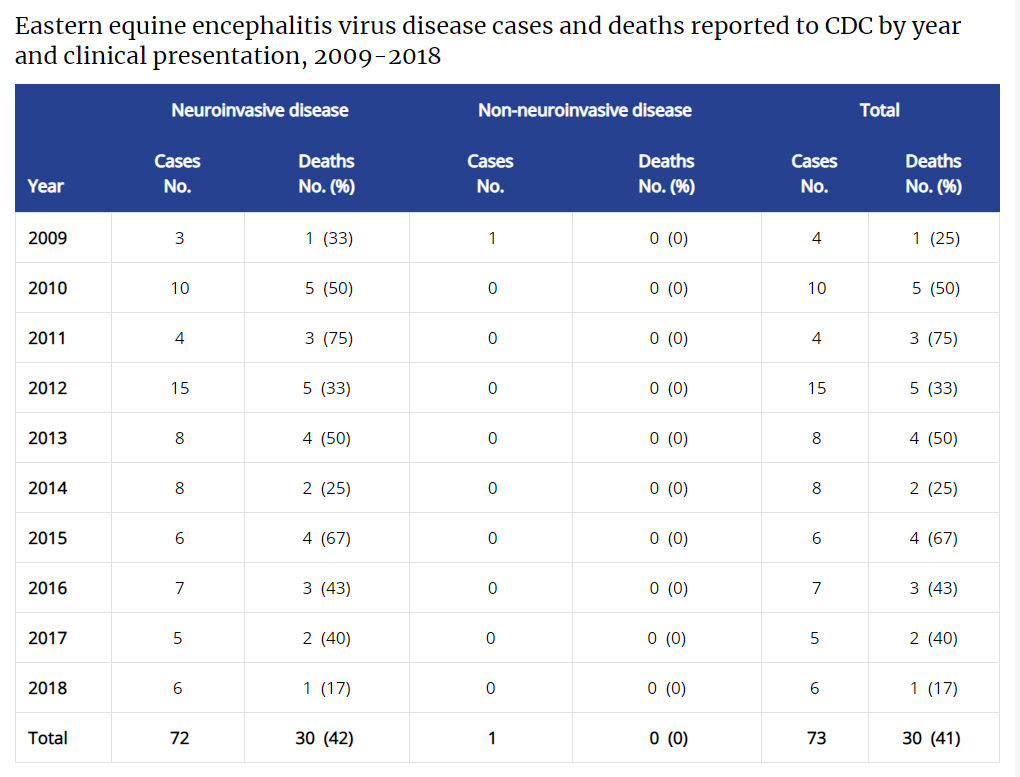Eastern Equine Encephalitis, a rare and potentially fatal mosquito-borne viral disease, has been found in chickens in all three of Delaware’s counties.
Eastern Equine Encephalitis can affect both people and horses.
It’s not as common as West Nile virus, but is more virulent and has a higher fatality risk, according to a news release from the Delaware Division of Public Health.
So far this year, no cases of either West Nile virus or Eastern Equine Encephalitis have been reported in people in Delaware.
The last recorded human case of Eastern Equine Encephalitis, or EEE as it is commonly known, in Delaware occurred in 1979, according to Delaware’s Division of Fish & Wildlife.
Many people infected with Eastern Equine Encephalitis have no apparent signs of illness. Symptoms appear four to 10 days after being bitten by an infected mosquito.
Severe cases involve encephalitis, an inflammation of the brain, and start with a headache, high fever, chills and vomiting. People then get disoriented, have seizures or end up in comas.
“Approximately 33 percent of EEE cases in people lead to death, and many of those who do survive can experience significant brain damage or other long-term effects. Those over age 50 and under age 15 appear to be at greatest risk for developing severe disease when infected with EEE. There is no specific treatment for EEE, with care based on symptoms,” the health department said.
There is no vaccine for people.
According to the Centers for Disease Control and Prevention, there have been 73 cases of Eastern Equine Encephalitis and 30 deaths since 2009. Of the 73 cases, one was in Maryland and one was in Virginia.

Delaware found EEE in sentinel chickens monitored for mosquito-transmitted diseases in the state. Four chickens from three of the 20 sentinel chicken stations had EEE. The three monitoring stations are located in southwestern New Castle County, east-central Kent County, and southeastern Sussex County. Sussex County is home to Delaware’s most poplar beaches — Rehoboth, Bethany, Dewey and Fenwick.
Delaware will increase monitoring and may spray for mosquitoes as warranted.
To lessen your chance of contracting EEE, use insect repellent containing DEET, where long-sleeved shirts and pants and avoid areas where mosquitoes are known to be.







